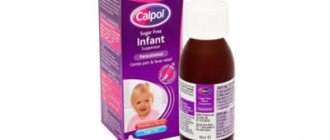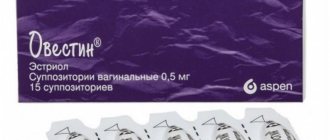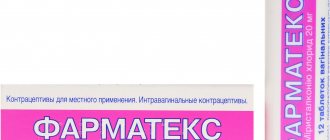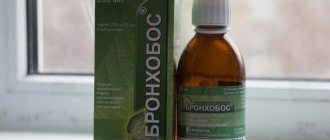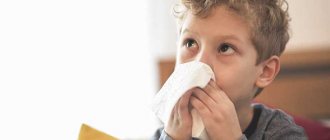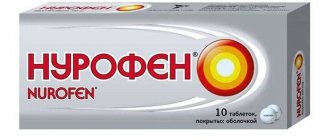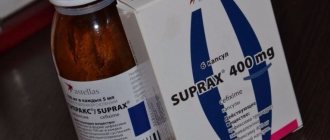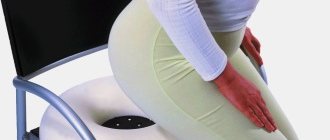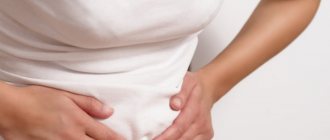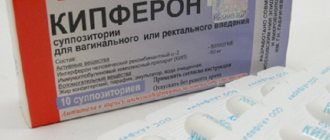- November 27, 2018
- Other drugs
- Inna Makagon
Nurofen is one of the well-known anti-inflammatory drugs and is often used for various pathologies, including fever and pain of various origins. For adult patients, it is more convenient to use tablet medication, but for children, suppositories and suspensions are considered more suitable options.
Nurofen rectal suppositories are designed specifically for the youngest patients. This medication can be used even in newborns, because its use eliminates the need for oral administration of syrup or tablets. Quite complete information about the medicine is contained in the instructions for Nurofen suppositories for children.
Composition, release form
The structure of the drug includes ibuprofen as an active ingredient. According to the instructions for use, Nurofen suppositories for children contain two types of solid fat, with the help of which the suppositories keep their shape. The drug is easily administered and quickly dissolves inside the intestine.
“Nurofen” in suppositories can be purchased at a pharmacy in a cardboard box, inside of which there are two blisters containing five suppositories. Only ten candles per package.
Compound
Nurofen for children in the form of a suspension contains ibuprofen , the syrup also contains additional components: glycerol , maltitol syrup, citric acid, sodium saccharinate, sodium citrate, flavoring, sodium chloride, domiphen bromide, xanthan gum, polysorbate 80, water.
Nurofen for children in the form of suppositories contains ibuprofen, as well as additional components: solid fat 1 (vitepsol H15) and solid fat 2.
pharmachologic effect
The drug has the following therapeutic properties:
- Analgesic.
- Antipyretic.
- Anti-inflammatory.
It should be noted that in case of pain, the effect of Nurofen suppositories for children is more pronounced if the cause is an inflammatory process.
According to the instructions, the suppositories contain ibuprofen, which penetrates into the blood where it forms compounds with blood proteins. Next, the active substance distributes evenly throughout all tissues, where it exerts its therapeutic effect for eight hours.
According to the instructions for use for Nurofen suppositories for children, it is known that the medicine begins to act twenty to thirty minutes after administration, since the absorption time of the drug is approximately fifteen minutes.
Application
This medication is widely used for ARVI, as a painkiller for bruises, sprains, and pain of moderate intensity.
It is popular to use Nurofen in suppositories if you have:
- ear pain;
- intestinal infection;
- sore throat;
- headache;
- elevated temperature;
- toothache;
- postoperative syndrome;
- joint pain;
- post-vaccination syndrome;
- influenza, ARVI;
- neuralgia;
- sprained or torn ligaments.
Nurofen suppositories begin to act after 30 minutes, since they are easily inserted into the anus and quickly dissolve in the intestine. Moreover, they are able to maintain their effect for 8 hours. 45 minutes after administration, an increased concentration of the active component is observed in the blood.
These suppositories are made specifically for children; they have a dosage 3 times less than an adult. Giving Nurofen suppositories to children over 3 years of age as an antipyretic effect is allowed for no more than 3 days. Treatment of pain syndrome should not last more than 5 days.
Advice: if a child’s temperature has risen as a reaction to a vaccination, then one or two suppositories will be enough to relieve the fever.
Indications
Suppositories are most in demand as an antipyretic when a child has inflammation or infection, or there may be another pathological condition in which the body temperature has increased. The medication is usually prescribed to children for the following conditions:
- Acute respiratory viral infection (a disease of the respiratory tract caused by a viral infection entering the body).
- Influenza (an acute viral disease that affects the upper and lower respiratory organs and is accompanied by intoxication).
- Acute otitis (inflammation of different parts of the ear, the distinctive symptom of which is severe ear pain).
- Scarlet fever (acute infectious disease, which is accompanied by intoxication of the body, rash all over the body, fever, redness of the tongue and throat).
- Measles (an acute viral disease characterized primarily by a rash).
- Intestinal infection (a group of infectious diseases of various origins that occur with primary damage to the digestive organs, as well as a toxic reaction and dehydration of the body).
- Inflammatory diseases.
- Teething.
For children over 2 years of age, Nurofen suppositories are not prescribed, since to obtain the desired effect, patients of this age and older need a higher dosage of ibuprofen, which is usually obtained from a suspension.
Suppositories are no less popular for pain, which can be either mild or moderate in intensity.
According to the instructions for use for Nurofen, suppositories for children are used in the presence of the following conditions:
- Pain syndrome in the throat.
- Joint pain.
- Migraine.
- Pain in the ear.
- Sprain.
- Toothache.
- Bruises.
- Postoperative pain.
- Bone fractures.
- Neuralgia.
How to use suppositories during a feverish state?
Since the most common reason for using the drug in babies is considered to be fever, mothers need to know in what situations Nurofen suppositories are allowed to be used.
For a child from three to twenty-four months, the indicator on the thermometer that requires the use of an antipyretic drug is considered to be thirty-nine degrees. But there are cases when it is recommended to lower the temperature at lower numbers, for example, if:
- There is an increased risk of febrile seizures.
- The baby has serious heart and vascular diseases.
- The child has difficulty withstanding high fever.
- Fever is caused by overheating.
- The reason for the rise in temperature was vaccination.
Contraindications
According to the instructions for the Nurofen suppositories for children, it is known that the drug should not be used if:
- The child weighs less than six kilograms.
- The baby previously had an allergy when treated with any anti-inflammatory drugs with a non-steroidal structure.
- A small patient was found to have erosive or ulcerative damage to the walls of the digestive organs, including bleeding.
- The child has liver disease.
- The baby is diagnosed with heart disease.
- The patient has severe abdominal pain.
In addition, the instructions note that the drug has many side effects, in which therapy must be carried out with extreme caution, for example:
- Systemic lupus erythematosus.
- Dehydration.
- Arterial hypertension.
- Anemia.
- Diabetes.
Therefore, if any problems with the child’s health arise, it is necessary to use Nurofen baby suppositories under the supervision of a medical specialist.
Adverse reactions
Sometimes, when using suppositories, a child may develop a negative reaction in the form of:
- Dermatosis (name of various skin diseases).
- Erythema (severe redness of the skin, which is caused by vasodilation).
- Urticaria (a polyetiological disease, the main clinical manifestation of which is transient urticarial rashes, that is, blisters and angioedema).
- Exacerbations of bronchial asthma (a chronic disease characterized by a variable clinical picture - an exacerbation of the disease is replaced by a long break without any asthmatic symptoms).
- Pain in the abdomen.
- Migraines (a neurological disease, the most common and characteristic symptom of which is episodic or regular severe and painful attacks of headache in one side of the head).
- Decrease in the number of red blood cells in the blood.
- Decrease in the number of white blood cells.
- Thrombocytopenia (a quantitative disorder of vascular-platelet hemostasis, which is characterized by a decrease in the number of platelets in the blood).
- Reducing the number of granulocytes (leukocytes, which inside contain granularity, consisting of small parts filled with active components).
- Formation of ulcers in the mouth.
- Flatulence (excessive accumulation of gases in the intestines).
- Constipation.
- Vomiting.
- Diarrhea.
- Anaphylactic reactions (the most severe form of an allergic reaction that poses a great danger to life).
- Stomach ulcers (a chronic pathological process that occurs with the formation of ulcerative plaques in the stomach, as well as a tendency to progression and complications).
- Ulcerative stomatitis (inflammatory disease of the oral cavity, accompanied by focal destruction of the mucous membrane).
- Liver disorders.
- Acute kidney disease.
- Increased blood pressure.
If, after the first use of Nurofen suppositories, a child develops at least one of the above-mentioned side symptoms, therapy should be stopped and a medical specialist should be consulted to prescribe another treatment.
Side effects
When taking Nurofen suspension and Nurofen Suppositories for children, side effects are observed only in rare cases. The following negative manifestations may develop:
- Gastrointestinal tract : pain or discomfort in the epigastrium, vomiting, nausea, diarrhea , ulcers and erosions of the gastrointestinal tract, bleeding from the gastrointestinal tract;
- nervous system : headache, insomnia , agitation;
- allergic manifestations : itching , rash, urticaria, angioedema, bronchospasm, anaphylactic shock , exacerbation of bronchial asthma, fever, toxic epidermal necrolysis, erythema multiforme;
- cardiovascular system : increased blood pressure, tachycardia ;
- hematopoiesis: thrombocytopenia, anemia, leukopenia, agranulocytosis;
- urinary system : cystitis , renal dysfunction.
Nurofen suppositories for children: instructions, price
Suppositories are used only rectally, and the dosage of the drug is determined taking into account certain factors, among which the most significant are the age and weight of the child.
The medicine is carefully inserted into the anus and pushed through with the index finger.
According to the instructions for the Nurofen 60 mg suppositories, one suppository is prescribed for children aged three months to two years. For small patients from three to nine months with a body weight of 6 to 8 kilograms, the drug can be administered three times a day, and the maximum concentration of the active substance for this age is 180 milligrams.
For children over 9 months to two years old, whose weight varies from 8 to 12 kilograms, suppositories can be administered four times a day (maximum dosage 240 mg). The intervals between procedures should be six to eight hours. It is advisable to insert suppositories after emptying.
If the small patient went to the toilet after using the drug, and the suppository has not yet had time to dissolve (less than fifteen minutes have passed), the medication can be reused.
The duration of treatment for fever during ARVI, as well as influenza and other infections should not exceed three days, and for pain syndrome the duration of treatment is up to five days. If babies from three to five months do not experience any improvement during the first 24 hours after the administration of the Nurofen baby suppository, you should immediately notify a medical specialist.
For young patients from six months of age, observation is carried out for three days. If during this time the patient’s condition has not improved, the symptoms do not go away or intensify, immediate consultation with a doctor is necessary.
If Nurofen is recommended for a child with a fever reaction to vaccination, then only one suppository is administered to the baby. For a patient older than one year, if necessary, six to eight hours later, it is permissible to insert another suppository.
The maximum concentration of the drug for post-immunization fever in children over one year of age is two Nurofen suppositories.
According to the instructions, there is no syrup for older children. The medicine for this category of patients is available in the form of a suspension for oral administration.
Of course, children over 2 years old can use suppositories to relieve fever and pain. But in this case, the dosage of Nurofen suppositories for children will be slightly different.
As a rule, it is recommended to administer Nurofen to children over 3 years of age with two suppositories at once. But in rare situations when it is not possible to use the drug in another dosage form, you will have to use this option.
Nurofen suppositories for children over 3 years of age can be used to reduce fever and relieve mild or moderate pain.
Nurofen rectal suppositories are sold freely in pharmacies, without a prescription from a medical specialist. The cost of the drug varies from 100 to 120 rubles.
The medicine must be kept in a dry place, away from children. Storage temperature is plus twenty-five degrees. Shelf life - twenty-four months.
Analogs
Level 4 ATC code matches:
Artrum
Brustan
Ketonal Duo
Nurofen Plus
Nurofen Express
Nurofen Forte
Nurofen Express Lady
Nurofen
Ibuprom
Ibuprofen
Advil
Mig 400
Has
Ketoprofen
Vimovo
Naproxen
Flexen
Nalgesin
Flamax
Novigan
Analogues of the drug are Bofen , Brufen Forte , Ibunorm Baby , Ibufen for children , Orafen . When using any analogue, you should first agree with your doctor.
Which is better: Panadol or Nurofen for children
The drug Panadol contains another active ingredient - paracetamol . But the effect on the body of both drugs is similar.
Panadol is also available in suspension form, making it convenient to give to a child. The final decision on the choice of medication should be made by the doctor.
Overdose
Increasing the dosage of ibuprofen can provoke the following unpleasant phenomena:
- nausea;
- noise in ears;
- stomach ache.
But when using suppositories, poisoning practically does not occur, since it is not possible to introduce many suppositories into the rectum at once. An overdose occurs only if the drug is used without maintaining a time period of six to eight hours. In this case, if you feel unwell, you should contact a medical specialist.
Mechanism of action of Nurofen
Ibuprofen is similar in chemical composition to other drugs in the group of non-hormonal anti-inflammatory drugs. From this group are aspirin, indomethacin and even analgin. However, each medication has its own side effects. Nurofen suppositories for children do not have an effect on the mucous membrane of the intestines and stomach. This is its advantage. The medicine is used for inflammatory processes of any localization, because ibuprofen is absorbed into the general bloodstream.
Rectal suppositories are inserted into the anus and absorbed in the rectum, the lower third of which has a vascular network that does not communicate with the portal vein, that is, with the liver. Due to the anatomical and physiological characteristics of the rectum, rectal administration of the drug has a powerful and almost instantaneous effect, somewhat similar to intravenous administration.
Nurofen suppositories for children contain ibuprofen, which blocks the synthesis of special substances - inflammatory mediators - prostaglandins. They have a destructive effect on cells at the site of injury. The inflammatory reaction becomes widespread, since prostaglandins act directly on the thermoregulation center located in the hypothalamus.
When using ibuprofen, the inflammatory reaction subsides, as it is deprived of real preconditions. In the absence of the necessary ingredients, the biochemical process is interrupted.
In addition, ibuprofen has increased selectivity for cells of the nervous and connective tissue. That is why Nurofen suppositories are prescribed for children with manifestations of sore throat, which is caused by β-hemolytic streptococcus - the main “culprit” in the development of rheumatism. Ibuprofen blocks nerve tissue receptors, thereby relieving pain. At the same time, places where streptococci accumulate in connective tissues: articular surfaces and the valve apparatus of the heart are blocked.
Like acetylsalicylic acid, Nurofen thins the blood by reducing platelet aggregation.
When administered rectally, the peak effect of ibuprofen begins after 45 minutes. The drug is removed from the body after 3-4 hours.
Interaction
It is not recommended to use Nurofen baby suppositories simultaneously with acetylsalicylic acid, as well as thrombolytic drugs, diuretics, Nimesulide, antiplatelet agents, Paracetamol, as well as cardiac glycosides and other medications according to the instructions.
Many of them, when combined with ibuprofen, increase the risk of side effects, for example, have a nephrotoxic effect.
Children's Nurofen during pregnancy and lactation
During pregnancy , Nurofen for children can be used in the first two trimesters, but only according to strict indications and under the supervision of a doctor. Treatment with the drug in the last months of pregnancy is not allowed, as this may provoke the development of uterine contractions.
When breastfeeding, children's Nurofen is not prescribed. If there is a need for treatment, the specialist selects other pills or advises you to stop breastfeeding.
Reviews
There are many good responses about treatment with Nurofen rectal suppositories for children. The drug has proven itself well among parents of newborns and children with a tendency to allergic manifestations. Among the advantages of this version of Nurofen is its immediate and long-lasting pharmacological effect when compared with a suspension.
According to mothers, adverse reactions to suppositories are extremely rare. If you use the drug for a short time and in the dosage prescribed by the doctor, as a rule, children tolerate the drug well.
Price of children's Nurofen, where to buy
When buying Nurofen children's syrup, you can find out the price directly at the pharmacy. On average, a 150 ml bottle costs 200 rubles.
The price of Nurofen for children in suppositories is on average 100-110 rubles per 10 pieces. You can buy suppositories at the pharmacy without a prescription.
- Online pharmacies in RussiaRussia
- Online pharmacies in UkraineUkraine
ZdravCity
- Nurofen for children susp.
for internal approx. strawberry 100mg/5ml fl. 200ml Reckitt Benckiser Healthcare International Ltd RUB 223 order - Nurofen for children susp. for internal approx. orange 100mg/5ml 150mlReckitt Benckiser Healthcare Limited
167 RUR order
- Nurofen for children susp. for internal approx. orange 100 mg/5 ml 200 ml Reckitt Benckiser Healthcare India/Reckitt Benckiser Healthcare (UK)
RUB 223 order
- Nurofen for children susp. for internal approx. strawberry 100mg/5ml 100mlReckitt Benckiser Healthcare Limited
118 RUR order
- Nurofen for children susp. for internal approx. strawberry 100mg/5ml 150mlReckitt Benckiser Healthcare International Ltd
167 RUR order
show more
Pharmacy24
- Nurofen for children 60 mg N10 suppositories Famar S.A., Greece/Famar A.V.E, Greece
55 UAH.order
Generics
A substitute for Nurofen suppositories can be any other medicine with the same spectrum of action, produced in suppositories, for example:
- Ibuprofen includes the same active ingredient as Nurofen, and in the same dosage (60 milligrams per candle). The medication can be used at high temperatures or for pain in babies older than three months.
- The action of children's "Panadol" in suppositories is provided by paracetamol. The drug with a dosage of 125 milligrams is used in young patients aged from six months to one and a half years.
- "Cefekon D" is also produced on the basis of paracetamol, but it can be used in children from one month of age, since the amount of active substance in one suppository is 50 milligrams.
- "Efferalgan" is an antipyretic medication in suppositories that contains paracetamol. At a dose of 80 milligrams it is prescribed to children from three to five months weighing up to eight kilograms, at a dosage of 150 mg - to babies over six months but under three years. In addition, suppositories may contain 300 milligrams of paracetamol each. This drug is used for children from three to ten years old.
- "Voltaren" contains diclofenac sodium in a dosage of 25 milligrams in each suppository, it is used at any age. It is usually prescribed for severe pain or inflammation, and for a temperature reaction, such suppositories are used when no other antipyretic medications are available.
- "Analgin" based on metamizole sodium can be used in babies older than three months, but this drug is prescribed to newborns under one year of age with extreme caution. Medicines in suppositories are classified as analgesic anti-inflammatory drugs. This drug also has an antipyretic effect.
The use of suppositories affects the production of substances that are responsible for the conduction of pain impulses and an increase in temperature. The effect of the drug begins to appear thirty minutes after its penetration into the rectum, and the maximum effect is noted after two hours.
Like Voltaren, Analgin is used only in the absence of drugs that are more harmless to newborns. In addition, it is important that one of its substitutes is considered a symptomatic medication, that is, it acts only on certain manifestations of the disease, for example, they help eliminate pain in the hearing organs and lower the temperature in a child with otitis media.
For some manifestations of diseases, such drugs do not work, so it is not recommended to give them without a doctor’s examination. In case of fever or severe pain, it is best to consult a medical specialist. The doctor will examine the child and give him the correct diagnosis, after which he will prescribe not only an antipyretic drug, but also therapy that is aimed at eliminating the cause, for example, an antibacterial drug if a small patient has developed a purulent sore throat. Introducing a suppository to a newborn without the consent of the doctor can be dangerous to the baby’s health.
